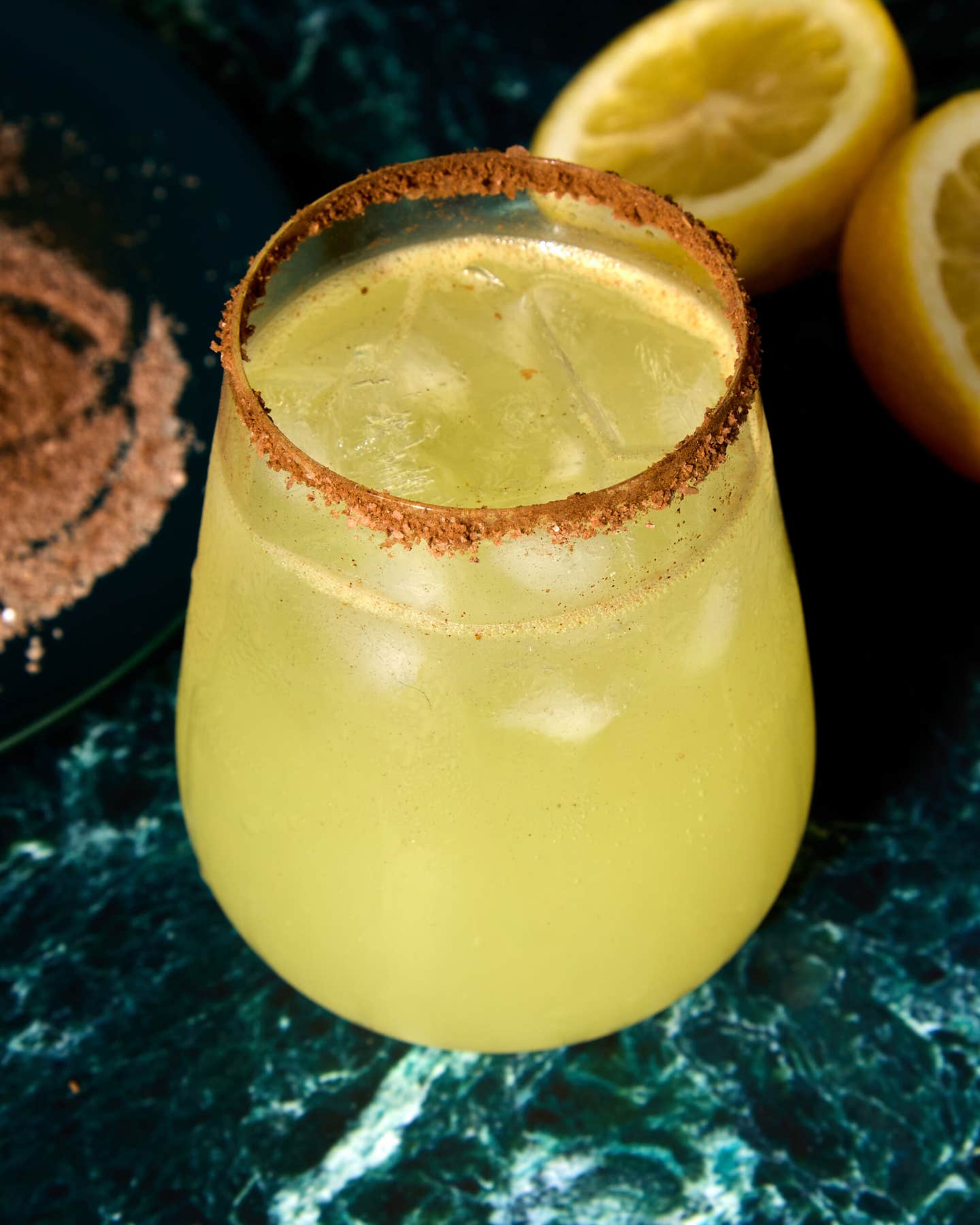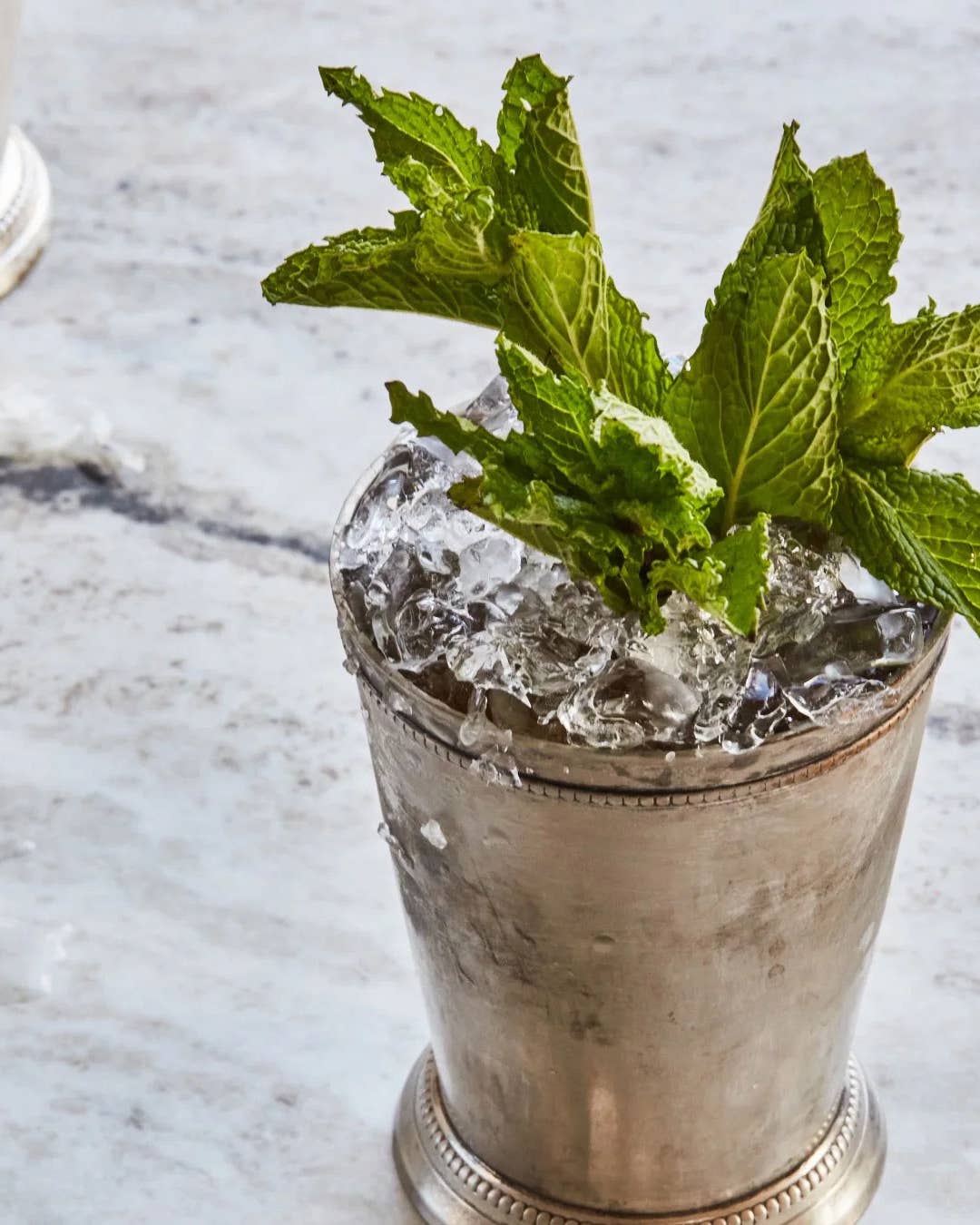

For the thirsty English major in all of us, and in honor of National Poetry Month, Rosie Schaap has paired some choice poems with the drinks that suit them best.
Charles Baudelaire
"Be Drunk"
Baudelaire's "Be Drunk" is a cri de coeur, a stand against bourgeois banality, an articulation of the best way to live our lives. We should be drunk, the poet counsels, on wine, poetry, or virtue, as we please. The point is, be drunk on something. And since we are further advised against feeling the heavy burden of time, don't make it anything complicated. Just stick with the wine. Red and plonky (but French, must be French), drunk straight from the bottle while walking unsteadily but cheerfully along the Seine in the early morning, entreating our fellow flâneurs and flâneuses to take a swig and be drunk, too.
Emily Dickinson
What I wouldn't give to have been able to meet the famously reclusive genius who made this perfect song of spring:
A little Madness in the Spring
Is wholesome even for the King,
But God be with the Clown
Who ponders this tremendous scene–
This whole Experiment of Green–
As if it were his own!
I’d try to persuade her to join me on a sun-soaked patch of grass in Amherst for a cocktail—something as green as the season itself, and certainly a bit mad. I’d make a not-too-sweet syrup infused with fresh, bright herbs, mix it with a small measure of gin, strain it into tall and exceptionally beautiful but durable glasses in which still more herbs have been muddled, and hit it with some Champagne to top.
Moira Egan
"Bar Napkin Sonnet #11"
Egan's collection of "Bar Napkin Sonnets" seems inevitable in the best way: someone had to write these beautifully observed, liquored-up poems that manage to feel both formal (they are sonnets, after all), and dashed off on bar napkins. The first among them I ever read is #11, which begins with the blunt, familiar truth: "Things happen when you drink too much mescal," and ends: "I wasn't sure which worm he meant, the one/I ate? The one that eats at me alone?" Naturally, one must drink mescal with this. But I'll go for a good one, minus the worm, and chase it with spicy sangrita.
Philip Levine
"What Work Is"
When he died earlier this year, I felt the loss of the former United States Poet Laureate deeply. What Work Is is one of the books I keep on my nightstand so I can reach for it easily and often. Its title poem is one of Levine's greatest achievements. The tireless chronicler of American working life left Detroit as a young man, but its presence lingered long in his poetic output. I want to reach back in time and grab a very cold can of Stroh's. After a long shift at Chevrolet, where Levine himself once worked, I'd drink it down fast, and then another. Why not something from a fine Michigan brewery like Bell's or Founders? It's not just that they're not Detroit-based. It's that I suspect it might make Levine roll his eyes and tell me to get over myself.
Frank O'Hara
"The Day Lady Died"
It's so jaunty and urbane and loaded with PROPER NOUNS often in CAPITAL LETTERS that, were it not for the title, you wouldn't know 'til the end, when the poem punches you in the gut, that you've been reading an elegy for Billie Holiday. As the speaker of the poem makes his rounds in Manhattan on a summer day in 1959, he buys cigs and a copy of the Post—and a bottle of Strega, the herbaceous Italian liqueur with a faint yellow cast, whose name means "witch." To observe the sadness of the occasion, I'd deploy the liqueur in a sour, with gin and lemon juice, shake it like mad to work out some demons of my own, and finish it with a few teardrops of bitters.
Robin Robertson
"Wormwood"
Scottish poet Robin Robertson wrote the sexiest poem about produce I know of: It's called "Artichoke," and you really ought to look for it. But since artichokes are famously tricky to pair with drink, I've turned instead to "Wormwood," from his 2006 collection, Swithering. Wormwood, we know, is an important component in absinthe, the one responsible for the elixir's enticing, if not entirely legit, reputation as a hallucinogen. I admire the elegance and precision of Robertson's writing, so I would want to serve a cocktail also worthy of those descriptors: the Fascinator, essentially a martini electrified by a few dashes of absinthe.
Rosie Schaap is The New York Times Magazine's "Drink" columnist and the author of the memoir Drinking with Men.
Keep Reading
Continue to Next Story










